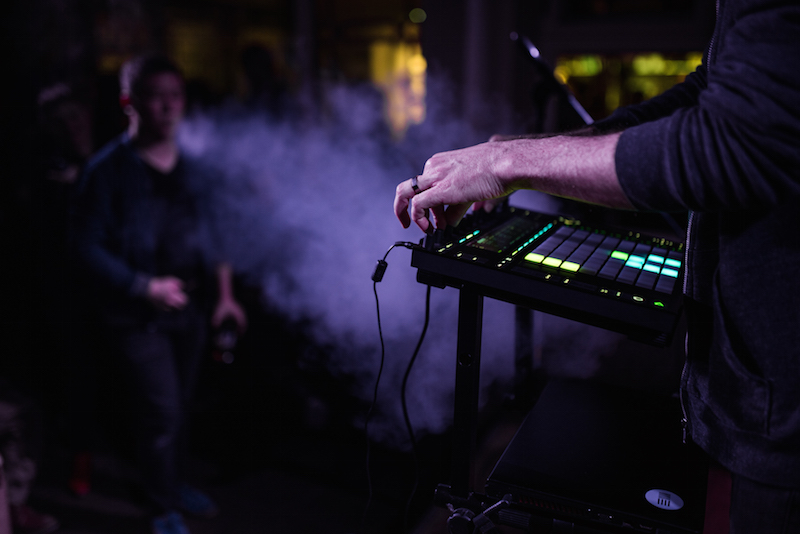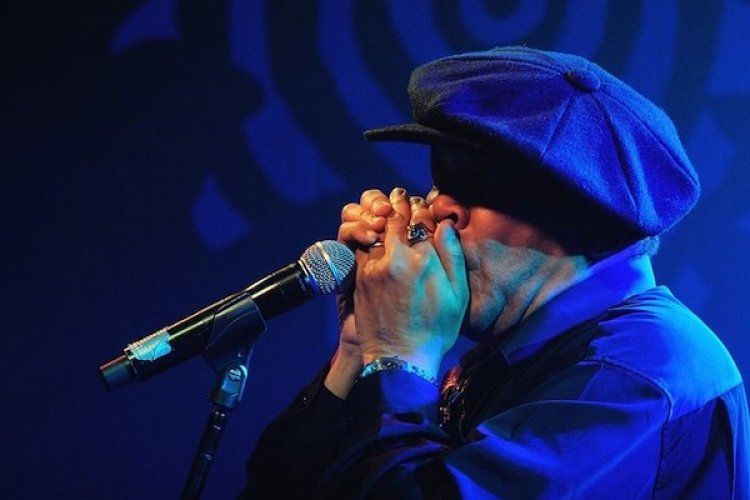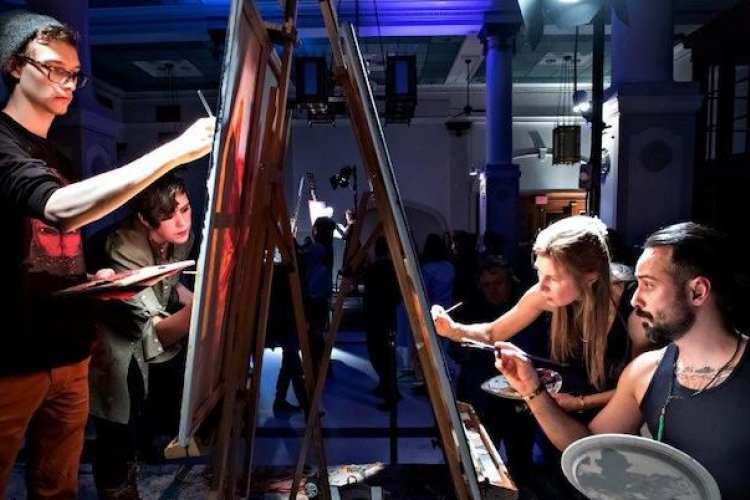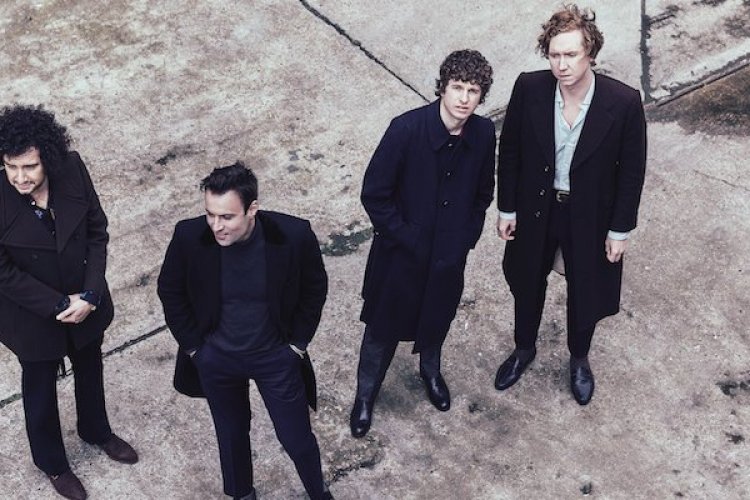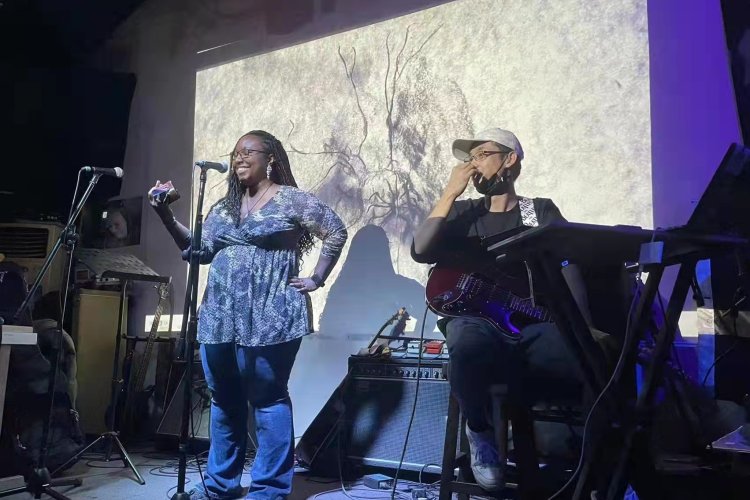Distant Urban Moods: Anxt Shares New Beijing-Shot Video
We've been listening to the emotional, sometimes dreamy and strangely alienating electronic tracks from Anxt for a while now. The Beijing-based producer's pieces not only leave you moving your head in a wave-like pattern but take you on a trip, ideally complemented with areal shots of the endless spaces of his homeland of South Africa or dense grayness of a fractal metropolis. Anxt (Gerald van Wyk) is also part of electronic post-rock band Macondo. He has previously collaborated with poets in the Spittoon-led project 'Spit-tunes' in creating a fusion of media and art disciplines.

This time, Anxt has teamed up with videographer Hannes Knutsson-Hall to make a video for the Beijing-inspired track "106." The piece weaves in sounds sampled from the daily buzz of Beijing streets. He named the track after the number 106 bus that he'd take to practice which, as he says, definitely brought a substantial amount of frustration to his routine. The video follows an unnamed man wearing an oversized head-mask as he walks the streets of Beijing, passively observing situations around him. In this sequence, Beijing is not portrayed as a happy-go-lucky place, but rather as an isolating and suffocating city.
Camera Stylo is hosting a screening of the video and a Q&A with Anxt this Saturday and we checked in before to ask a few questions about his music, current collaboration and the video "106."
You have previously collaborated with poets for the Spit-tunes project creating word and sound fusion. Tell us about this collaboration. How did the idea come about and how did you and Hannes Knutsson-Hall come together?
Anxt: Spit-Tunes was conceptualized by Matthew Byrne from the Spittoon collective, and it was an idea he has been carrying with him for a while. When it finally materialized, Matthew asked me if I would consider collaborating with one of the Spittoon poets. I was intrigued and excited about the opportunity and ended up collaborating with a poet called Matias Ruiz-Tagle. The process was completely different to my normal production method but we made something that worked quite well. I created a track that would fit the mood and rhythm of the poem, which was called “A Song for Rosetta”. It was about this space probe (Rosetta) that they built to land on this comet.
As for Hannes Knutsson-Hall, we were introduced to each other by a mutual friend, Ting Ting Alice (my booking agent) the founder of Borderless. She gave him the track "106," which we chose as the first single, and asked him if he would be interested in creating a music video for it. Pardon my clichè collection, but the rest is history.

The character in the music video seems to be suffocated by the city and more of an observer than in control of his own day. How was he created? Are the places in the video spots that you (or your colleague) frequent or did you seek out the location looking for a specific vibe for the video?
I personally feel anxious when I have to use the subway or any public transport system for that matter, just because of the sheer amount of people that you have to negotiate. It can indeed feel suffocating.
Hannes suggested we get the mask, and that’s about the only idea we had for the initial concept. I know that China has a history with masks, but I don’t know that much about the cultural significance of it. The mask lends an anonymity to the character and represents the normal everyday man and woman living in Beijing. It could make the story more relatable in this way.
Most of the footage was shot in my local neighborhood (Dongzhimen) where I reside. It was the spaces that we were most familiar with and because we didn’t really have the time or budget to scout areas we just ended up shooting around Dongzhimen.
What was the preparation for the shooting and how long did the production take? Did you have time to work on the script or was it improvised as you went?
We didn’t really have the time to write or storyboard anything, we just ended up talking about ideas we had. For sure, we had a clear vision of what we wanted to achieve, but nothing was set in stone. We ended up improvising some shots as some things just weren't feasible without having a proper cast or mock-up of the real-world scenario. Also learning to trust Hannes while walking backwards into oncoming traffic took a while. Especially while wearing a mask which makes you much less aware of your new bodily dimensions.
It took us about three to four weeks to finish all the shots. There were some breaks in between as I also have other projects that I’m working on. Hannes and I also have full-time jobs.
You have mentioned that your music is inspired by nature. Coming from South Africa, do you think that the urban Beijing landscape is taking charge and influencing your pieces? Or are you looking into the natural environment for ideas?
In the beginning, I was always trying to find parks or natural environments to sample sounds, but in a city like Beijing, it’s basically impossible. So, you will find a lot of urban soundscapes in my productions. I’m still trying to merge those two concepts, as I find nature always reclaims what has been urbanized or taken from it. That’s one thing I do miss about South Africa, big open natural spaces.
Under what circumstances was the track "106," created?
I used to always have to take the 106 buses to Dongzhimen, as “Macondo” (the other musical project I am a part of) has their practices there. It was during winter and we used to finish practice quite late, and I always ended up standing around waiting for the bus at 11:30pm in sub-zero temperatures.
I ended up resenting that damn bus as it was the only bus on my route home, and it was never on time or it just never arrived. I ended up sampling it and decided to make a track out of it so I could pass the time listening to it while I’m waiting for the bus, or walking home.
Do you have specific places in Beijing that you find interesting or inspiring?
Beijing is inspiring, it’s really a place where people from different backgrounds come together and they just start things … poetry nights, art exhibitions, bands … It’s a creative hub for artists!
Also, the fact that venues are so accommodating and willing to host new artists on their stages makes it something truly special. I was only planning on coming here for one year, but I have rooted myself deeply into this city and its people. It’s the people that make Beijing something special.
Watch the full music video here.
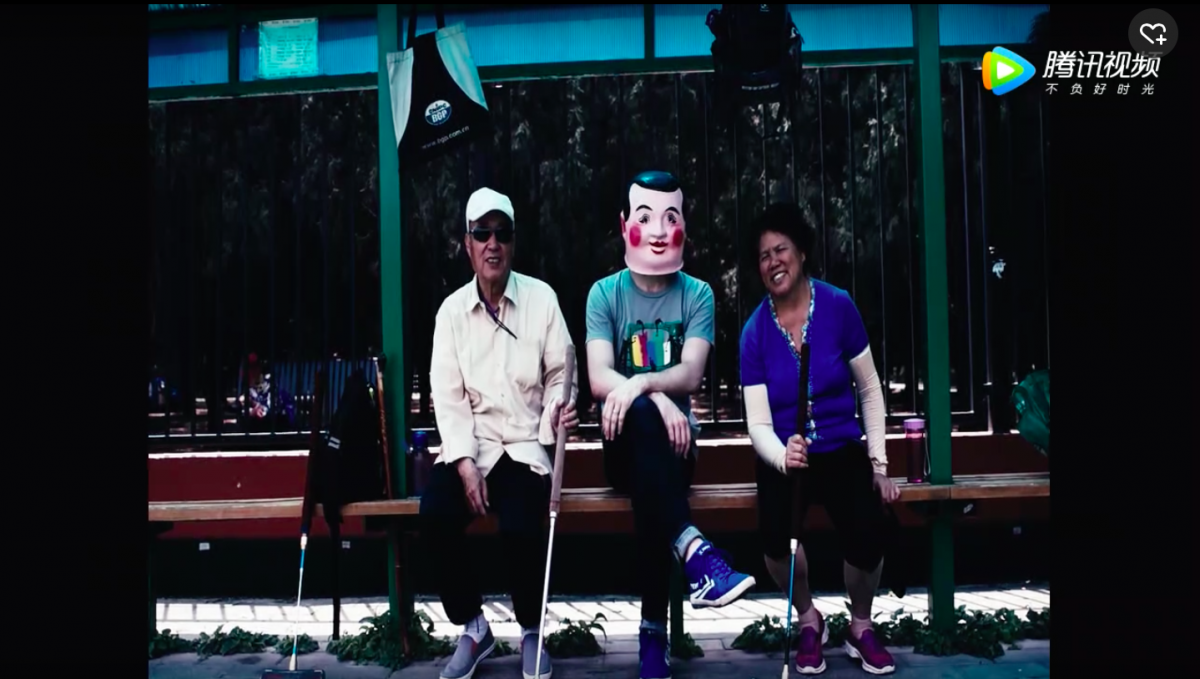

Check out the screening of "106" and a Q&A with Anxt and Camera Stylo on Saturday, Aug 5 at 8pm. For more information, click here.
Images: Paul Peng, QQvideo

